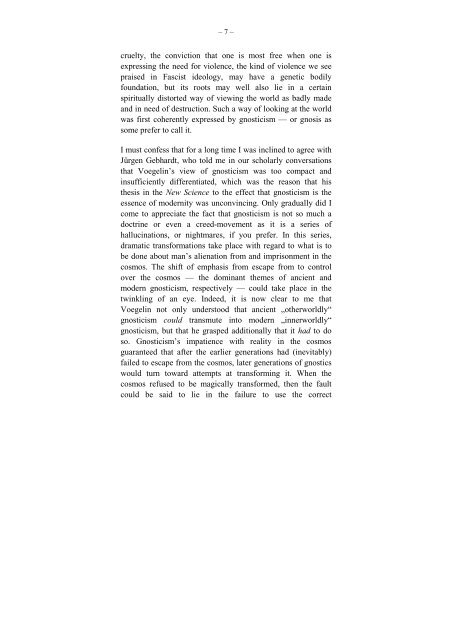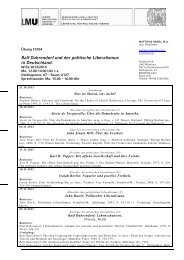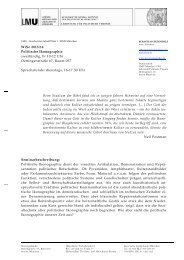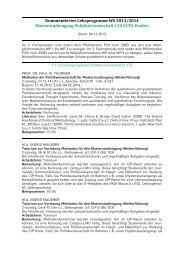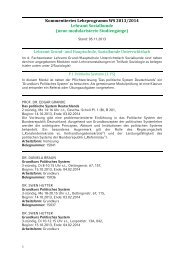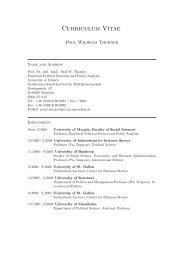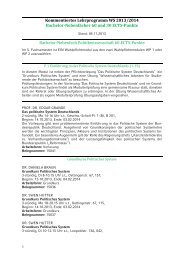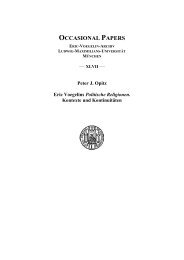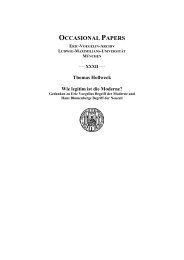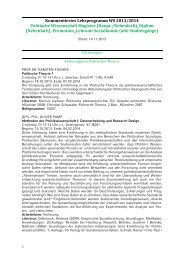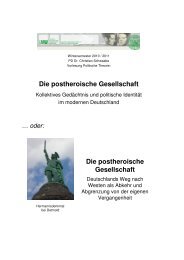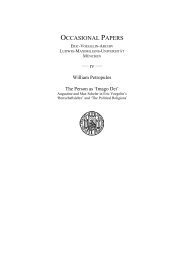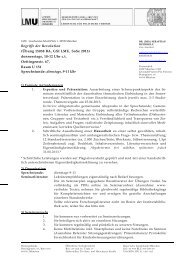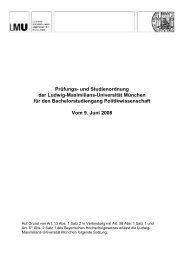Eric Voegelin.pdf - Geschwister-Scholl-Institut für Politikwissenschaft
Eric Voegelin.pdf - Geschwister-Scholl-Institut für Politikwissenschaft
Eric Voegelin.pdf - Geschwister-Scholl-Institut für Politikwissenschaft
Create successful ePaper yourself
Turn your PDF publications into a flip-book with our unique Google optimized e-Paper software.
– 7 –<br />
cruelty, the conviction that one is most free when one is<br />
expressing the need for violence, the kind of violence we see<br />
praised in Fascist ideology, may have a genetic bodily<br />
foundation, but its roots may well also lie in a certain<br />
spiritually distorted way of viewing the world as badly made<br />
and in need of destruction. Such a way of looking at the world<br />
was first coherently expressed by gnosticism — or gnosis as<br />
some prefer to call it.<br />
I must confess that for a long time I was inclined to agree with<br />
Jürgen Gebhardt, who told me in our scholarly conversations<br />
that <strong>Voegelin</strong>’s view of gnosticism was too compact and<br />
insufficiently differentiated, which was the reason that his<br />
thesis in the New Science to the effect that gnosticism is the<br />
essence of modernity was unconvincing. Only gradually did I<br />
come to appreciate the fact that gnosticism is not so much a<br />
doctrine or even a creed-movement as it is a series of<br />
hallucinations, or nightmares, if you prefer. In this series,<br />
dramatic transformations take place with regard to what is to<br />
be done about man’s alienation from and imprisonment in the<br />
cosmos. The shift of emphasis from escape from to control<br />
over the cosmos — the dominant themes of ancient and<br />
modern gnosticism, respectively — could take place in the<br />
twinkling of an eye. Indeed, it is now clear to me that<br />
<strong>Voegelin</strong> not only understood that ancient „otherworldly“<br />
gnosticism could transmute into modern „innerworldly“<br />
gnosticism, but that he grasped additionally that it had to do<br />
so. Gnosticism’s impatience with reality in the cosmos<br />
guaranteed that after the earlier generations had (inevitably)<br />
failed to escape from the cosmos, later generations of gnostics<br />
would turn toward attempts at transforming it. When the<br />
cosmos refused to be magically transformed, then the fault<br />
could be said to lie in the failure to use the correct


